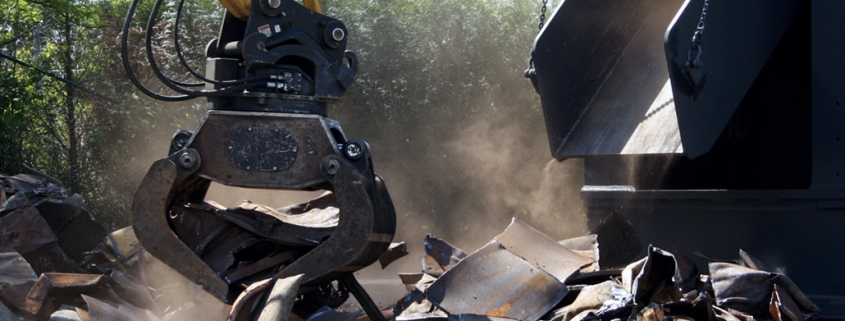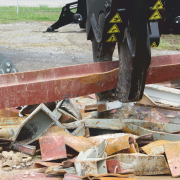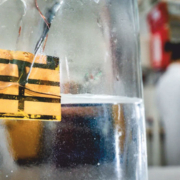German Steel Scrap Association BDSV: The Use of Steel Scrap Saves Billions in Climate and Environmental Costs
Steel scrap is a key raw material for steel production, not only in Germany, and contributes significantly to the reduction of emissions. This is the main result of the study »Scrap Bonus. External Costs and Fair Competition in the Global Value Chains of Steelmaking«, which the Fraunhofer Center for Economics of Materials CEM conducted on behalf of the German Steel Scrap Association BDSV in November 2019. Accordingly, the study shows that the use of steel scrap in Europe reduces the costs of climate change by up to 20 billion euros a year.
The use of steel scrap saves CO2 emissions compared to the primary production of steel from ores and refined mining products. The use of steel scrap also reduces other environmental damages, such as acidification of water, summer smog or eutrophication. In order to illustrate these savings, the study introduced the indicator »scrap bonus«. It indicates the climate and environmental costs that are avoided by using a ton of scrap in steel production. In conclusion, the study suggests that the scrap bonus needs to be incorporated in the price mechanism.
The scientists conclude that using one ton of recycled stainless steel scrap saves 4.3 tons of CO2 in stainless steel production. With carbon steel, the average saving of using one ton of steel scrap is 1.67 tons of CO2. This means that if you use a ton of carbon steel scrap as raw material input instead of using ores, an amount of CO2 equivalent to the emissions of an average car with a petrol engine in Germany driven over a distance of around 9,000 kilometers is saved. The research team calculated that the scrap bonus is between 79 and 213 Euros per ton of carbon steel scrap and even between 158 and 502 Euros per ton of stainless steel scrap used in the production of steel.
The study determines pollution abatement by using the Scrap LCI (scrap life cycle inventory) that takes into consideration the global average of emissions avoided during the production of steel along the value chain. This includes a complete record of the life cycle of the materials used, from the extraction, production and use of raw materials to the use of energy sources and the recycling of residues.
»The study strongly contributes to raising awareness of the importance of scrap as a raw material for steel production. Steel recycling is an integral part of a circular economy. The use of high-quality scrap is an expression of an economically and ecologically sustainable steel production. We advise our clients that this is an important lever for the efficient use of materials and raw materials, « says Dr. Frank Pothen, head of the CEM and first author of the study.
»The insights gained through the study underline the importance of steel recycling and show how it can be strengthened, quantitatively and qualitatively, primarily through research and development, with a focus on medium-sized companies. Additional funding and policy measures in this field make an efficient contribution to climate protection and at the same time increase the competitiveness of the steel and steel recycling industry. For us, the scrap bonus is a bonus for scrap, « states BDSV President Andreas Schwenter on the occasion of the publication of the study.
List of available documents concerning the study on »scrap bonus«:
Long version of the Fraunhofer IMWS study
Short version of the study
Short clip on the »scrap bonus«
Source: BDSV Bundesvereinigung Deutscher Stahlrecycling- und Entsorgungsunternehmen e.V. (25th of March, 2020)








